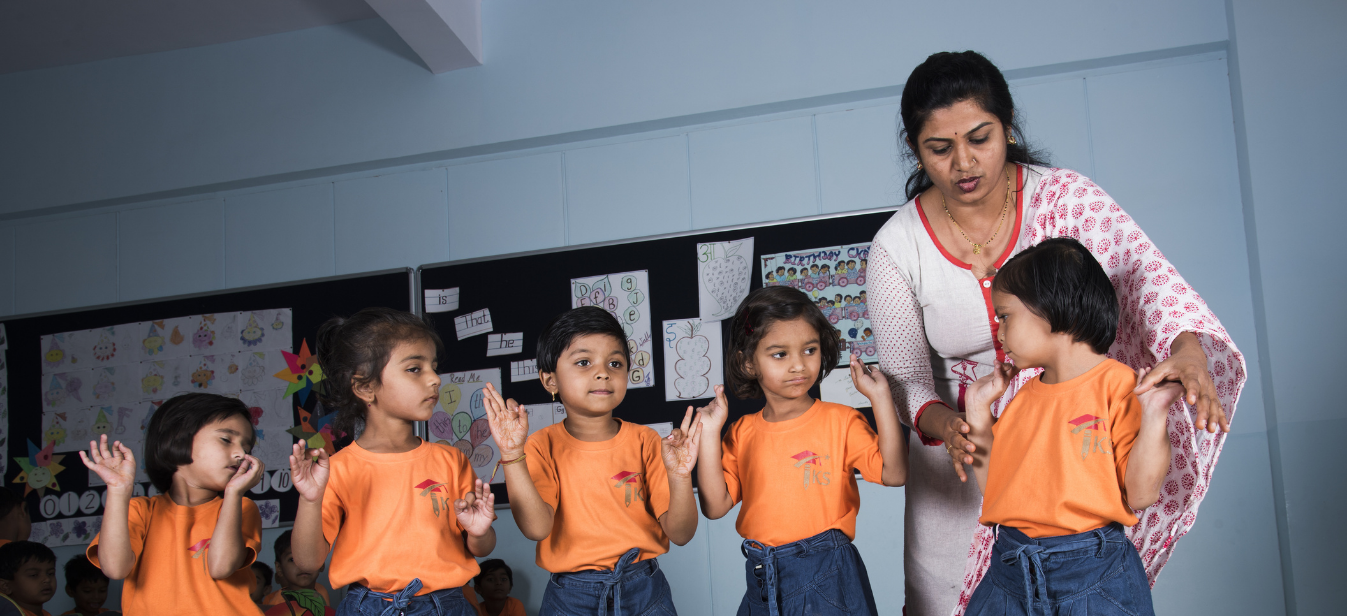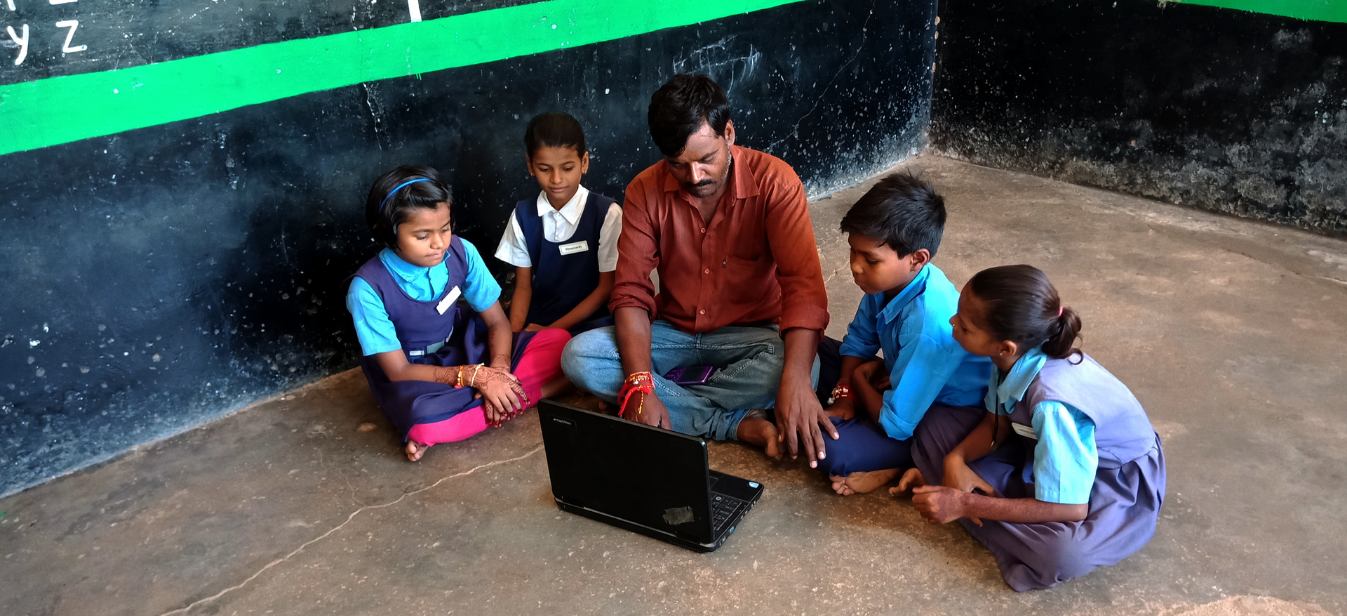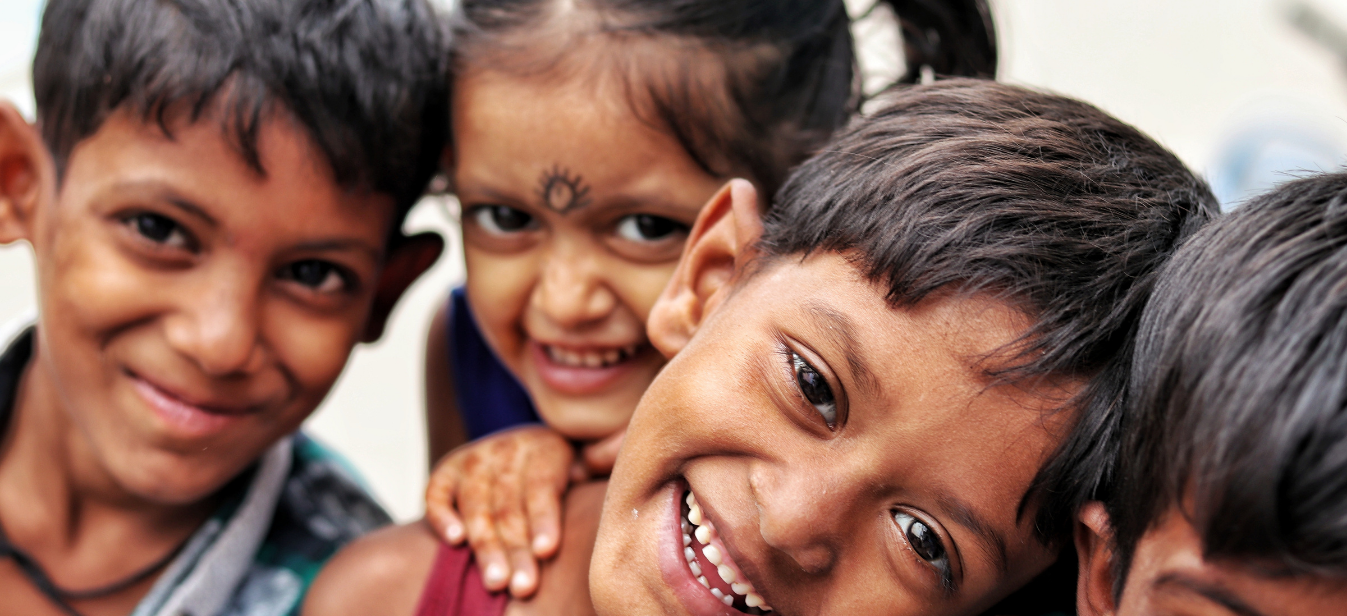
The early years are the most crucial period of brain development, research shows. In this time frame, young learners need to be introduced to essential life skills like cognitive reasoning, socio-emotional development, motor skills, foundational literacy and numeracy, and more, to enhance their future success, as well as impact the future of the entire nation.
The revolutionary National Education Policy released in June 2020 reviewed the definition of Early Childhood Care and Education (ECCE), stating, “ECCE ideally consists of flexible, multi-faceted, multi-level, play-based, activity-based, and inquiry-based learning, comprising of alphabets, languages, numbers, counting, colours, shapes, indoor and outdoor play, puzzles and logical thinking, problem-solving, drawing, painting and other visual art, craft, drama and puppetry, music and movement”.
According to NCERT data, only 14% of the Indian classrooms utilize teaching materials beyond the content-heavy textbooks. With the new direction as the NEP 2020 envisions, there is a need to go beyond the existing rote learning method and move towards a more experiential learning approach in teaching and learning methodologies. Educators are now required to change their mindset, while the conventional curriculum, assessments, and teaching practices get transformed into a more NEP-aligned position. In a country where traditional forms of learning have been prevalent such as writing on a blackboard and reading from the textbook, or ‘rote learning’, teachers will now have to adapt to a new way of teaching which is more hands-on, experiential & inquiry-based.
How We Expect Experiential Learning Methods To Help
Young children learn best with play and activities where they are given opportunities to explore their equipment, surroundings, or techniques to resolve and respond to situations effectively. Experiential learning promotes interest, aptitude and cognitive development, and departs ways from rote learning especially during the primary years of education. Usage of various resources such as flashcards, puppets, story books, etc., to engage the early learners has the desired effect of increasing engagement, retention, and enjoyment of learning too.
To help educators impart instruction that cleaves away from the traditional practices and incorporate new age (read: 21st century) skills, there exists a need to provide training in how to adapt experiential methods in the class, how to wield technology effectively, and what happens in a child’s brain as they start to learn. Classrooms will benefit from using a blended model of learning, including a strong emphasis on AI and ML-driven learning, which can not only help scale efforts to suit needs of various states, but can even be personalised to individually impact each learner.
Square Panda India’s Teaching-Learning Model
Foundational Learning Program: Square Panda India’s interactive model, combined with storytelling pedagogy are aimed towards developing a real understanding of the subject in question, rather than focusing on rote learning, which aligns with the policy’s goal to teach children ‘how to learn’. Our methodologies align to the unique needs of each child, enhancing their learning outcomes.
Educator Empowerment Program: Our unique training programs:
– The Anganwadi Workers Upskilling Program
– Empowerment & Enrichment Program for ECCE Educators
work towards empowering early years’ educators-Anganwadi workers, pre-primary and primary teachers-to help them develop holistically, and in turn, impact their students’ learning and development.Early learning experts have always emphasised the importance of deep comprehension of deep meaning over recollection of facts. “Learning cannot happen by memorisation. We have to put what we learn in context of real life, to actually learn,” says Square Panda India MD, Ashish Jhalani, in the very first edition of our educational #EarlyLearningMatters series of panel discussions. Watch session #3, this Saturday and Sunday, only on the Times channels.

A fast-paced world demands academic improvement, and the Indian educational landscape can fare much better when traditional learning is updated with experiential teaching and learning techniques.
We at Square Panda India are excited to see the changes our Aarambh program can bring to the ECCE ecosystem, with our experiential and innovative programs. Learn more about us: ecce.squarepanda.in








